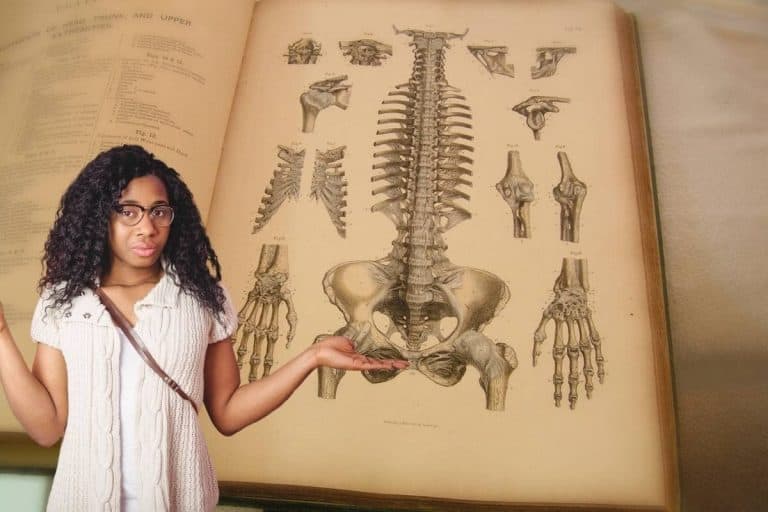Is an Economics Degree Worth It?
Despite some controversy that college economics is outdated, economics continues to be a highly versatile and adaptable subject conferring invaluable skills on economics graduates. Employers often seek out skills acquired in an economics degree, and graduates often also receive high earnings.
An economics degree is worth it and provides graduates with highly sought-after skills such as critical thinking, problem-solving, numeracy, and communication. An economics degree can be highly versatile and lead to several careers that are not necessarily strictly financial.
Economics is a diverse field of study and touches on almost every aspect of our lives, both domestically and internationally. If you are an economics major or are deciding whether the degree fits your future plans, this article will give you some reasons why an economics degree is definitely worth your time.

Is an Economics Degree Hard?
An Economics degree is not hard, but it tops the top ten in several online lists, including the Cambridge assessment of subject difficulty. In this particular survey, the survey featured economics as number 15 of 33 listed majors.
The main difficulty students experience on the college level is the math-heavy requirements of algebra, calculus, and differential equations to explain the more complex scenarios and processes.
Macroeconomics requires advanced memorization and understanding of several economic models, how they operate, and how they may apply to unfamiliar economic models in exams.
Microeconomics relies quite heavily on math and statistics skills to understand concepts such as economic statistical modeling and econometrics.
Economics also employs the first principles approach to formulate solutions. It tends to start with a small amount of accurate information that the student must use to build up their argument, which some students may find challenging.
The subject requires consistency and a fair amount of study to progress through the various levels, much as many college courses. Students of economics fare best when they complement their studies in the existing academic literature around the subject, including sources such as:
- The Financial times
- The Economist
- The daily news
- Economics lectures
- Economic blogs such as Economists View
What does an Economic degree help you learn? Let’s take a look at these valuable skills now.
Economics Develops Communication Skills
Economics allows students to present their ideas in a well-defined framework with supportive evidence in a comprehensive structure. A background in economics confers the ability to simplify complex issues and extract the relevant facts to support an existing argument.
The course teaches students to communicate research results to a wide audience, including those without an economics background. Students also benefit from learning invaluable skills to communicate ideas and findings effectively from original research.
Students gain the opportunity to practice these skills in assignments, projects, and assessments. Concurrently, the students learn the quantitative and qualitative data to support their research objectives.
You Learn Problem-Solving Skills
The key to the study of Economics is proficiency in problem-solving skills and how to adapt problem-solving routines to the sometimes messy real-world problems. It teaches how decisions are made, markets function, and primarily how economic forces drive social systems.
Economics as a discipline emerged to solve the fundamental problem that affects all levels of society, namely the condition of scarcity and the limitations of productive resources. Almost every major problem we face today, from the ecological crisis to the war in Afghanistan, has an economic dimension.
This degree uses a highly quantitative, data-driven problem-solving approach to the behavior of both the individual and society. The discipline teaches students to track, study and predict human behavior, which has never been more relevant for our changing face of humanity.
Your Critical Thinking Skills Are Enhanced
A critical study found that undergraduates who learn the basics of economics showed higher levels of critical thinking than their non-economics counterparts.
Using the Watson-Glaser Critical Thinking Appraisal (WGCTA-S), the study showed that students with a knowledge of introductory economics showed significant gains in their WGCTA-S results.
Critical thinking skills are highly transferable to other fields of study and future employment prospects.
Students may apply these skills to real-world problems as well as situations that call for reflection analysis and planning. In a global economy driven by information and technology, critical thinking allows one the flexibility to integrate diverse sources of knowledge to create solutions.
You Gain an International Perspective
A grounding in economics has become vital for any serious student of international relations. The economics study offers domestic and global perspectives and reveals insights into the relations between peoples, cultures, and societies.
Economics aids students in understanding human beings and their driving forces and motivations at both local and international levels. This scope allows them critical insight into designing initiatives that have a social and economic impact at all levels of society.
Understanding economics on a domestic and international level both historically and currently provides knowledge about how different societies and cultures interact. In a world of rapidly accelerating globalization, economics is a key to understanding international corporations and provides a broad framework from which to view society’s dynamics.
For example, China’s sweeping economic reforms and the manner of their implementation resulted in significant changes in Chinese society. These economic reforms resulted in a reduction of poverty, increased standards of living, and growing ties to the world economy (source).
It Has Social Significance
Economics provides an informed approach to understanding and analyzing government decisions and ensuring stable economic growth, lower inflation, and decreased unemployment. This study provides the tool for policy analysts to study government policies’ costs, benefits, and consequences from the national health sphere to national security and education.
The principle learned in economics can guide business and government in making decisions that foster a prosperous society. Economic policy and economics principles affect our modern world, including addressing issues such as:
- Global warming
- Climate change
- Elimination of poverty in developing nations.
- The depletion of oil as an energy source.
Economics can help improve the world we live in and affect the living conditions of entire nations of individuals. A simple increase in the gross domestic product of a country is not limited to an economic improvement in increased employment and higher average incomes for the country’s citizens.
A simple change in economic policy confers real-life improvements such as improved nutrition, housing health, and prevention of disease.
Likewise, economists play an important role in the world’s recovery from the devastating effects of the COVID pandemic. They used their experience to formulate investment procedures to best encourage growth in the post COVID landscape.
You Learn More About Your Life
Economics gives insight into your spending habits and values while educating you on how organizations and markets behave. You will find that your everyday life is infused with economic calculations and principles that function just as viably in the microcosm as the macrocosm.
Economics affects our daily lives in several ways.
As an individual, economics frames our choices between work, leisure, what, and how much we spend and save. On a broader level, economics impacts our lives through macro-economic trends such as inflation, interest rates, and economic growth.
Most of our everyday lives involve the fundamental concepts of economics, including production, distribution, and consumption, and can help us make decisions in our day-to-day life.
The insight gained from economics makes one more aware of the factors that may cause us to make unsound decisions and resist commercial nudges that convince us to consume goods that offer no real benefit.
You’ll Learn Invaluable Ways For Starting Your Own Business
If you plan to start your own business or plan to be an entrepreneur, economics is an invaluable tool for your success. Economic theories and empirical investigation techniques empower business owners to investigate public policy and business industries.
The advanced numeracy of economics education helps business owners determine which investments are profitable and how much to charge for their products or services and handle budget issues. This degree also gives a deeper understanding of statistics, statistics software, and statistical testing to make sound business decisions.
The theories and practices covered in economics study give students an understanding of investment, loans, and taxes and steer their business towards maximum profits and long-term success.
Economics Increases Employability in Diverse Fields
The World Economic Forum isolated the top skills that employers will seek moving forward towards 2025. Of the top 5 skills, the survey projected:
- The ability to think analytically and innovate.
- Complex problem-solving skills.
- Critical thinking techniques.
As discussed above, a degree in economics fulfills these prerequisites and more. In the marketplace, employers actively seek the skills gained in economics education as well as the associated high numeracy skills (source).
More than ever, with climate upheavals and economic crises, employers are seeking college graduates that can adapt and thrive in these times of change and upheaval. A major in Economics dovetails with diverse fields of employment, from finance, Big Data, law, and international relations.
Besides the obvious financial fields open to economics graduates, the broader landscape offers opportunities in:
- Market research
- Politics
- Public relations
- Journalism
- IT journalism
- Business intelligence
- Entrepreneurship
- Starting your own business.
You’ll Gain Transferable Skills
Beyond the subject-specific skills such as economic models and principles, Economics offers other highly transferable skills to other fields and professions. These skills are highly sought after in the job market and students’ personal and social contexts.
Transferable skills of economics include:
- Advanced numeracy and the ability to use statistical analysis and mathematical methods.
- Computer proficiency in a variety of IT software and programs.
- Advanced analytical skills for creating new research methods, data observation, and projections.
- Enhanced communication skills to explain complex concepts and present findings in a comprehensive manner.
- Time management skills and management of competing priorities.
- Problem-solving capacity includes formulating solutions and drawing informed conclusions.
Is There a Future for Economists in the Automation Age?
There is a future for Economics graduates in the automation age. The analytical, problem-solving skills with advanced numeracy and empirical research skills are highly adaptable to various emerging fields. These skills complement technology.
Experts speculate that the Economics field is prime for some dramatic changes in teaching and syllabus. Experts speculate that economics like medicine needs to adapt its models that still reflect an idealized model of economic equilibrium,
Much like those in the medical sciences need to adapt to outbreaks of new diseases, Economists need to reflect on the changing shape of the modern economy. While this speculation remains rife, the skills learned in an economic degree are not limited to what some perceive as an outdated syllabus.
Rapid advances in machine learning mean that technology will replace many human functions.
As data becomes cheaper and more abundant, the world is ready for people who can ask new questions, with a strong basis in critical thinking and a firm grasp of empirical research.
Problem-solving is another skill our emerging markets will need.
These are all skills that an Economics degree bestows on their graduates in abundance. Economics helps students prepare for careers that require all the above skills for business planning, marketing, and research.
Economics helps students think strategically and isolate financial risks about investing resources that are as valuable for the government as it is to design a bidding platform on eBay. The discipline of Economics congers highly flexible skills that will adapt well to the rapidly changing face of commerce and the integration of AI and automation.
Source: University of Oxford
The Average Income Of Economics Graduates
Glassdoor lists economics graduates as number 15 of the highest-paid college graduates in America (source). They list the most popular entry-level careers for an economics graduate as:
- Accountant
- Auditors
- Financial Analyst
The listed average salary for these entry-level positions is a base salary of $52,000.
According to the US Bureau of Labor Statistics, the median average earnings of a master’s graduate of Economics was $108,350 in May 2020, more than double the national average for all occupations.
Conclusion
Economics provides a rigorous framework to view the trade-offs incentives and costs vs. benefits in real-world applications. The skills acquired in an economics degree are highly transferable and sought after in a variety of fields.
It also teaches us about choice in the face of scarcity, how to interact in society, and become informed participants in our political milieu.
Recommended Reading:






